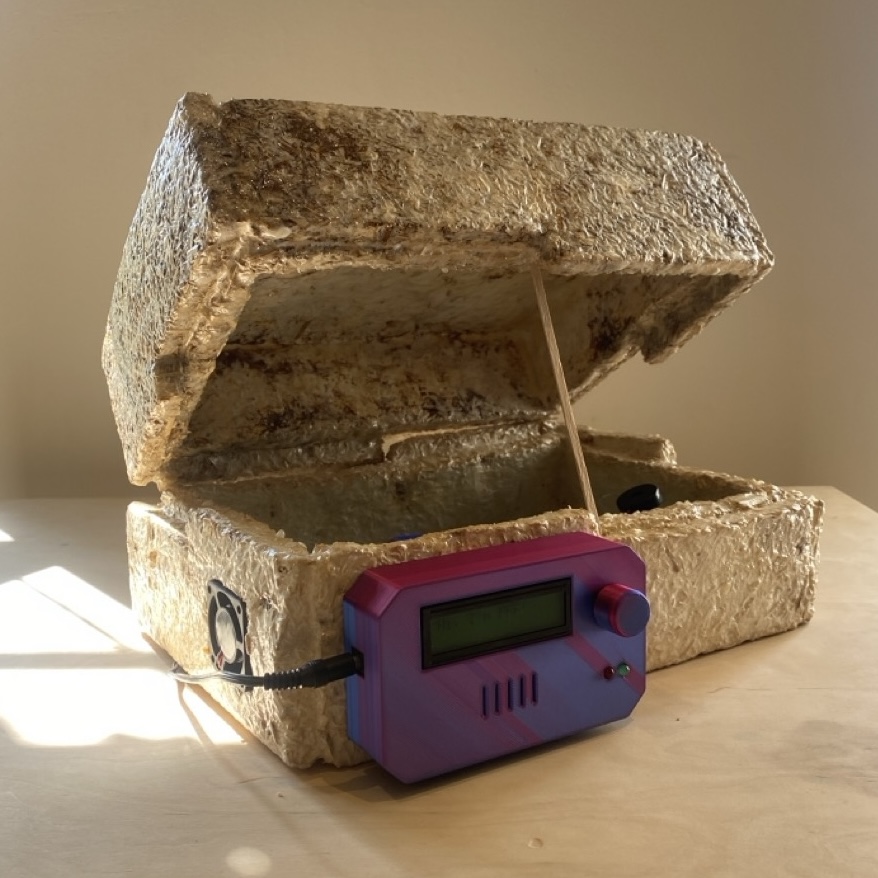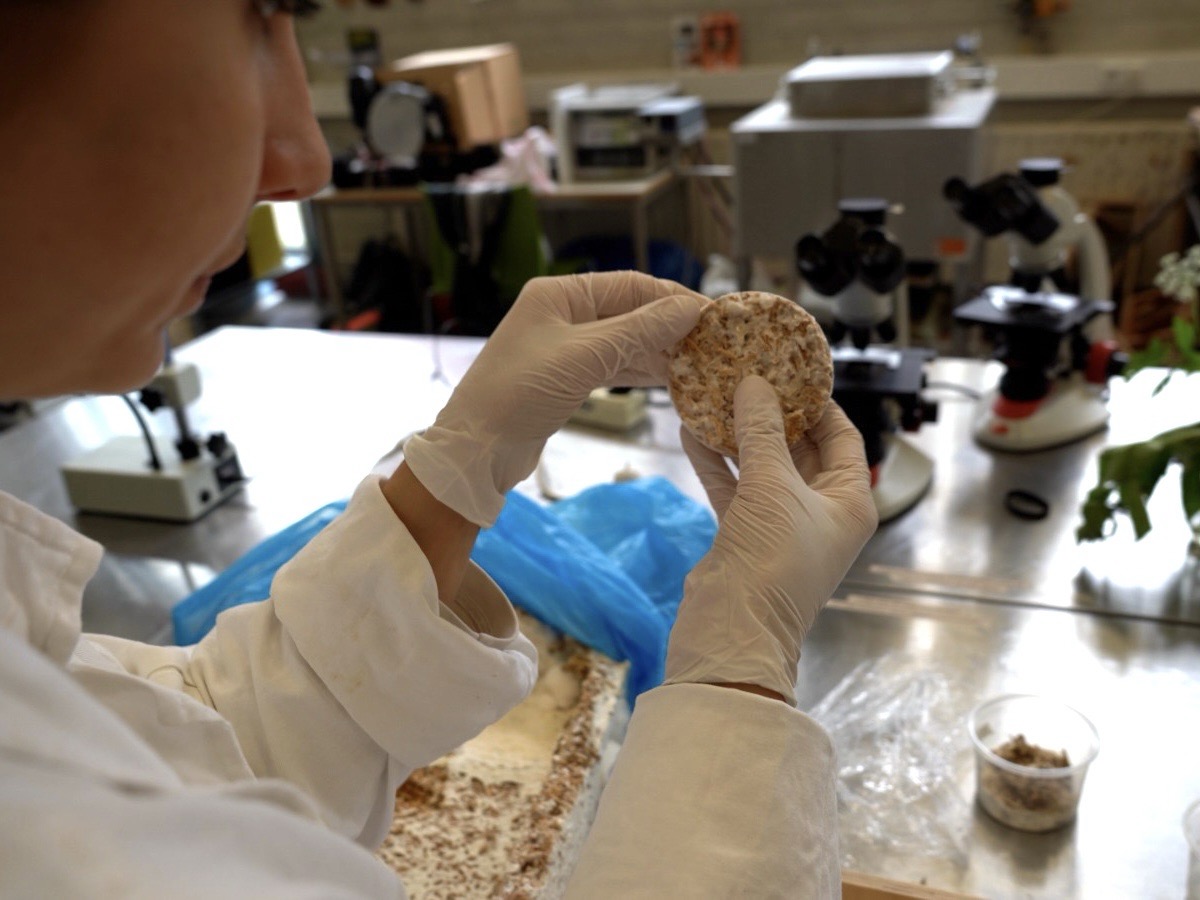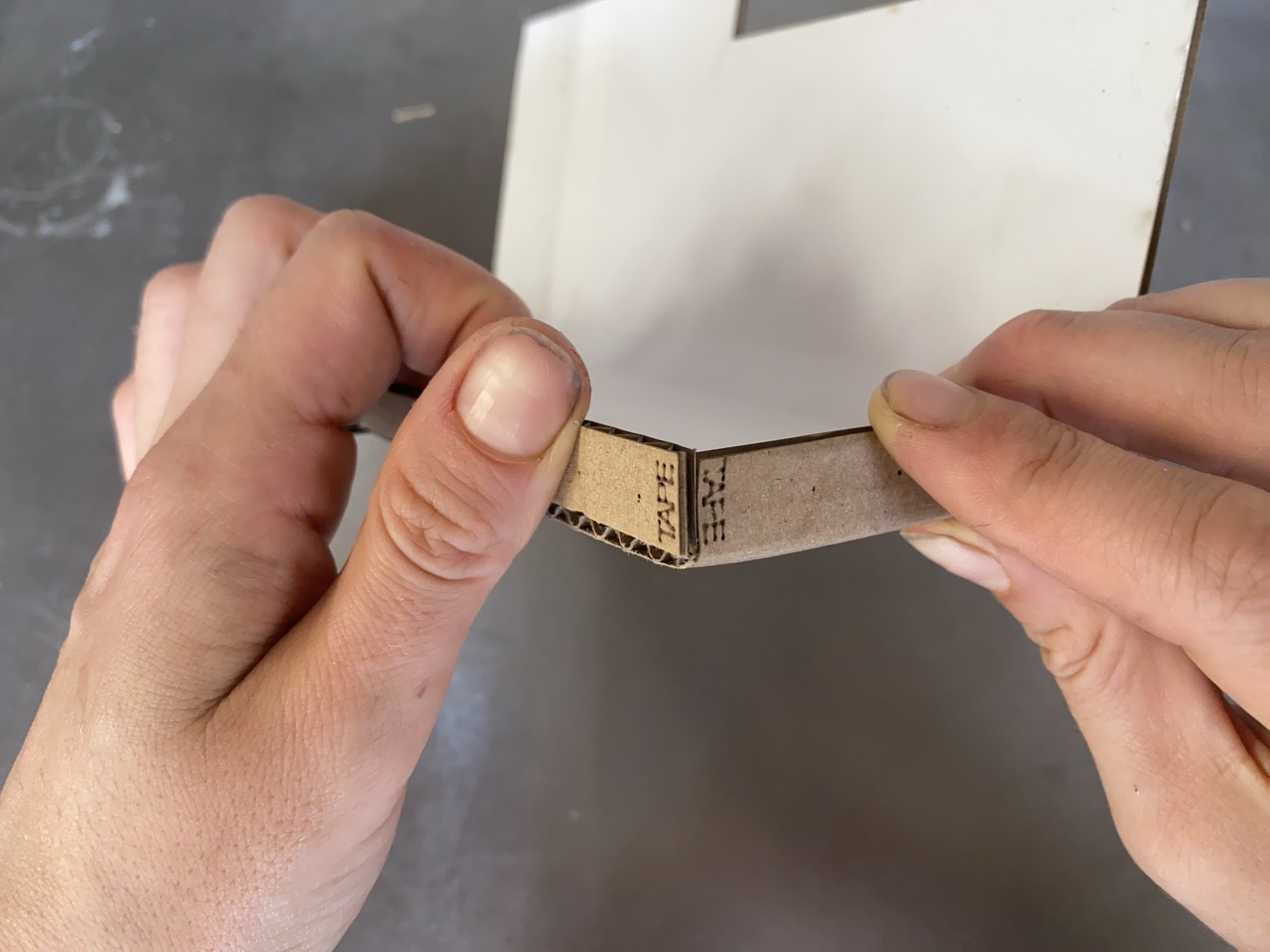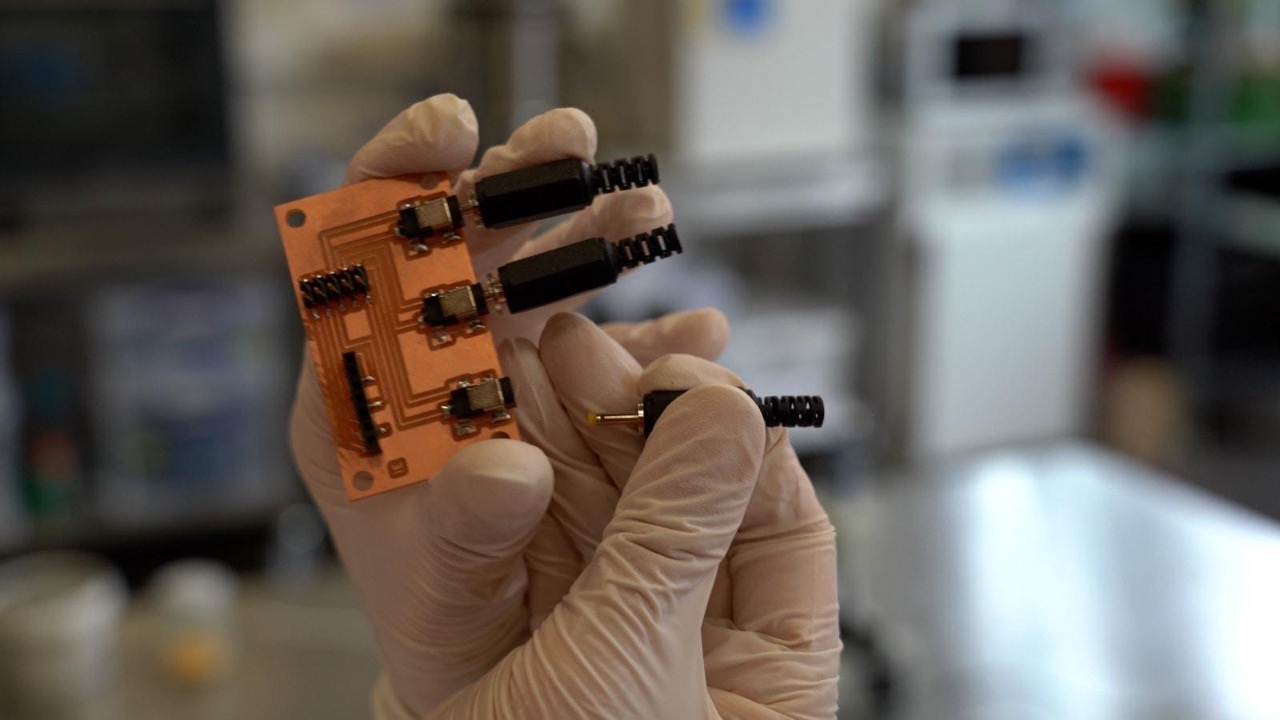Fungal Fermentation Factory
01 Jun 2023
I graduated in 2023 with my project “Fungal Fermentation Factory”, my utopian vision on the future of household appliances.

The fungal fermentation factory
Always wanted to ferment food, but don’t know where to start? FFF - Fungal Fermentation Factory is your sustainable kitchen help for foolproof at-home fermenting.
Electronic devices are one of the biggest growing waste streams of our time. Appliances are build to break, and with every update or improvement we’re pushed to buy new machines. Fungal Fermentation Factory shows us an alternative. FFF is a grow-it-yourself fermentation machine. By using natural materials such as mycelium (the roots of fungi) and with modular, updatable electronic components and an open-source approach this new kind of kitchen appliance is build to be repairable, updatable and sustainable.
Fermenting: Futureproof Food
Fermentation is the art of letting your food rot - under controlled circumstances. By controlling the microbal growth we unlock a range of health benefits and prolong shelf life in a natural way. During fermentation probiotics are produced; bacteria that play a crucial role in digestive health. They help balance the gut microbiome, which is linked to improved digestion, a stronger immune system, and even mental health benefits. Additionally, fermentation can increase the bioavailability of nutrients, making it easier for our bodies to absorb them. Fermenting food is also a sustainable practice. It reduces food waste by preserving seasonal produce and transforming it into long-lasting food items. By fermenting at home, we can cut down on food waste, industrial processing, packaging, and the carbon footprint associated with transporting refrigerated goods.
Fungal Machines
Instead of conventional plastics, FFF uses mycelium for it’s housing. Mycelium, the fungal “root” system, consists of thread-like structures called hyphae that grow underground or in substrates. It decomposes organic matter and recycles nutrients back into the ecosystem. Grown under controlled conditions, mycelium creates a sustainable material, which can replace plastic or wood. This composite can be moulded into various shapes, offering biodegradability and minimal environmental impact. To ensure food safety and protect the machine against moisture, FFF collaborated with BASF, the largest multinational chemical company in the world, on a sustainable solution. Using a water-based liquid polymer barrier, we avoid unsustainable materials like fluorocarbons and waxes and enable the mycelium to be recycled with minimal waste.

Grow-it-yourself
FFF is a “grow-it-yourself” kit. The kit provides the consumer with all the materials to grow the mycelium housing at home, and re-uses the cardboard packaging as a mould. By repurposing the cardboard packaging of this kit for our moulds, we provide the box with a useful second function, reducing overall material consumption and improving transport efficiency. The cardboard’s interior is made of stone paper, an eco-friendly material composed of 80% limestone and 20% bio-plastic, completely free from trees. It requires no water or chemicals during production and emits 67% less CO2 compared to pulp paper. Stone paper can be recycled endlessly, without the need for additional raw materials. The stone paper prevents the mycelium from infiltrating the cardboard, while the tiny holes in the material ensure sufficient oxygen supply for optimal mycelium growth.

Modulair Electronics
FFF is constructed using modular electronics, purposefully designed for easy disassembly. This means that the electronic components are engineered to be simple to repair and replace. This extends the product’s durability, and improvements require minimal adjustment, instead of buying a whole new machine. This approach reduces the demand for raw materials, thereby shrinking the ecological footprint and minimizing waste. Modular electronics also enables open-source compatibility, empowering users with the freedom to customize and modify their machines according to their specific needs. FFF strongly advocates for this approach, emphasizing the importance of user autonomy.
